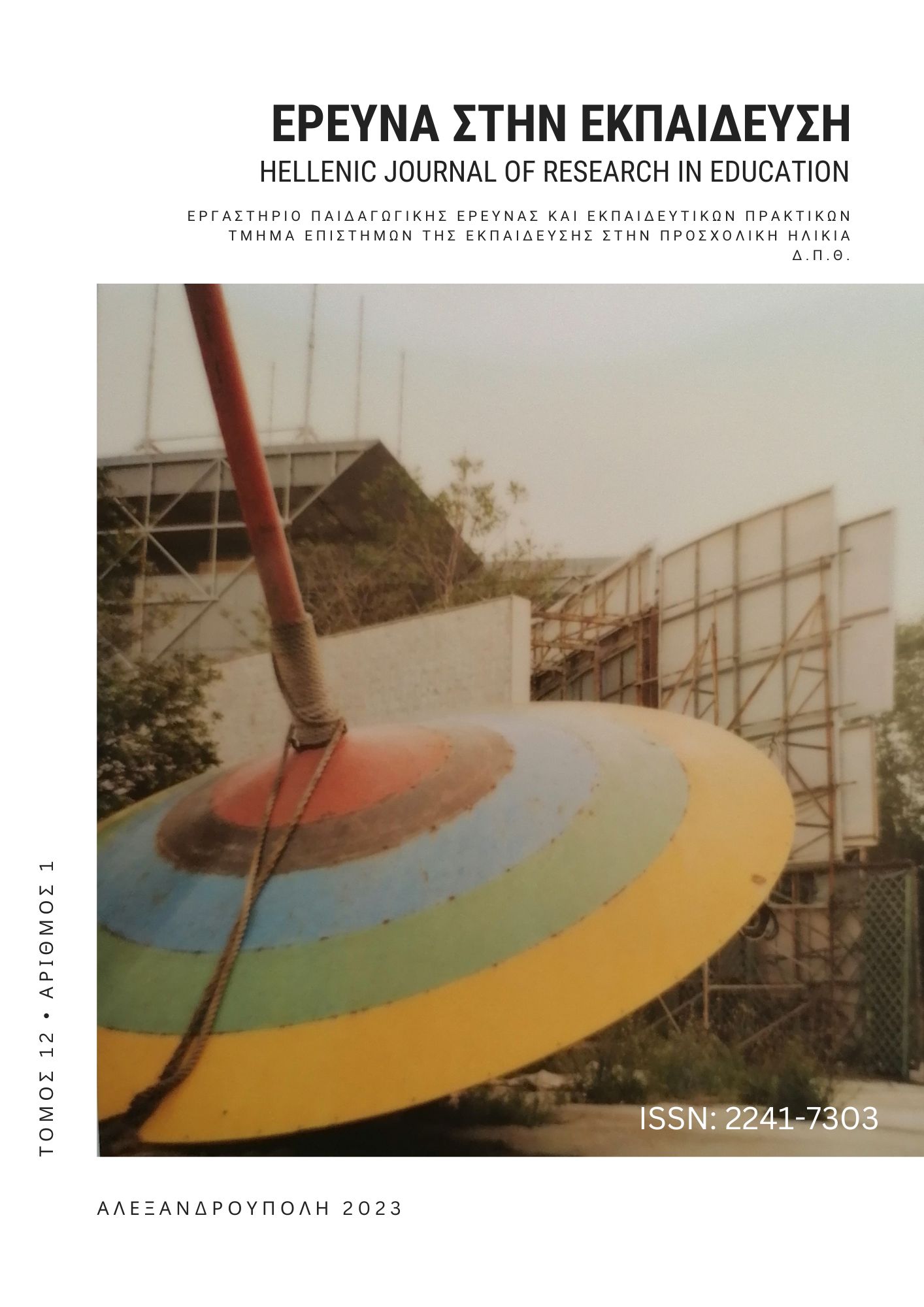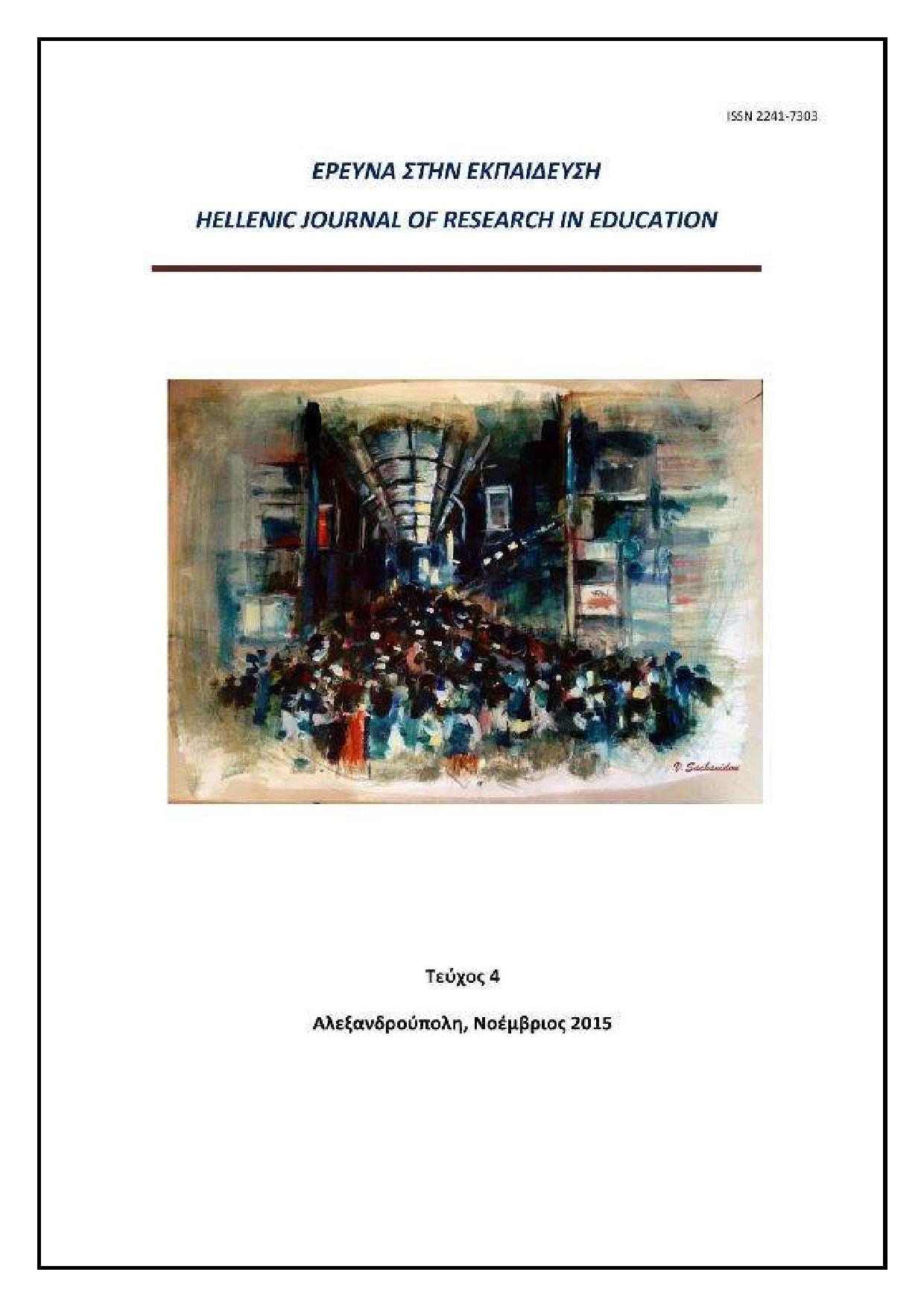Διερευνώντας τη σημασία των ήπιων δεξιοτήτων κατά τη μαθησιακή διαδικασία

Περίληψη
Οι ταχύτατες δημογραφικές αλλαγές, οι έντονες μεταναστευτικές εισροές, η έλευση της 4ης βιομηχανικής επανάστασης και η παγκοσμιοποίηση συνιστούν μερικούς από τους σημαντικότερους παράγοντες που διαμορφώνουν τον σύγχρονο τρόπο μάθησης και εκπαίδευσης. Η παρούσα έρευνα έρχεται να διερευνήσει, με τη χρήση της κλίμακας Sostra, τις απόψεις 159 (Ν) φοιτητών/τριών και εκπαιδευτικών, εκ των οποίων οι 105 φοιτούν σε προπτυχιακά προγράμματα σε τρία Πανεπιστημιακά Ιδρύματα και οι 54 εκπαιδευτικοί φοιτούν σε μεταπτυχιακό πρόγραμμα τις ήπιες δεξιότητες που θεωρούν ως σημαντικές κατά τη μαθησιακή διαδικασία. Ακολουθήθηκε η βολική δειγματοληψία και η ανάλυση των δεδομένων έγινε με την εφαρμογή του λογισμικού IBM SPSS v.28. Η εσωτερική συνοχή του ερωτηματολογίου τεκμηριώθηκε από τον υπολογισμό του συντελεστή Cronbach's Alpha ο οποίος ήταν υψηλός (0,932>0,70). Τα αποτελέσματα της έρευνας καταδεικνύουν ότι και για τις δύο ομάδες οι τρεις υποκατηγορίες των δεξιοτήτων-ενδοπροσωπικές, διαπροσωπικές και κοινωνικο-συναισθηματικές- θεωρούνται πολύ σημαντικές. Παρατηρήθηκαν στατιστικά σημαντικά διαφοροποιημένες απαντήσεις ως προς την ηλικία και την ιδιότητα (προπτυχιακοί/ές ή μεταπτυχιακοί/ές) των συμμετεχόντων.
Λεπτομέρειες άρθρου
- Πώς να δημιουργήσετε Αναφορές
-
Παλαιολόγου Ν., & Καρανικόλα Ζ. (2023). Διερευνώντας τη σημασία των ήπιων δεξιοτήτων κατά τη μαθησιακή διαδικασία. Έρευνα στην Εκπαίδευση, 12(1), 20–36. https://doi.org/10.12681/hjre.32150
- Τεύχος
- Τόμ. 12 Αρ. 1 (2023)
- Ενότητα
- Άρθρα

Αυτή η εργασία είναι αδειοδοτημένη υπό το CC Αναφορά Δημιουργού – Μη Εμπορική Χρήση – Παρόμοια Διανομή 4.0.
Τα πνευματικά δικαιώματα των άρθρων του περιοδικού ανήκουν στους συγγραφείς. Τα άρθρα διατίθενται με άδειες Creative Commons CC-BC-SA 4.0



